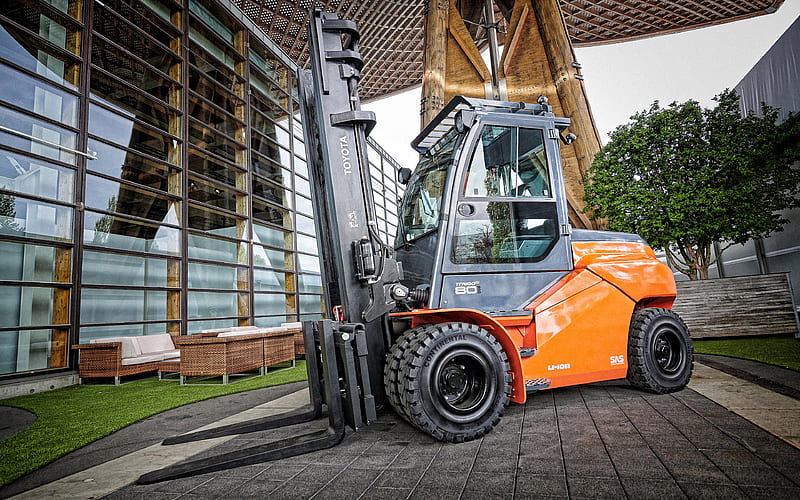Revving Up Reliability: Expert Tips for Toyota Forklift Service and Repair
Revving Up Reliability: Expert Tips for Toyota Forklift Service and Repair
Blog Article

When it comes to maintaining a smooth operation in any warehouse or industrial setting, the performance of your equipment is paramount. Toyota forklifts are renowned for their reliability and efficiency, but like any machine, they require regular service and repair to keep them running at peak performance. Whether you rely on a fleet of forklifts for heavy lifting and transporting goods or just a single unit for your business operations, understanding the importance of proper service will go a long way in prolonging the life of your equipment.
In this article, we will explore expert tips for Toyota forklift service and repair that can help you maximize uptime and reduce the risk of costly breakdowns. From routine maintenance checks to troubleshooting common issues, we will provide insights that will enable you to take proactive steps in ensuring your forklifts remain dependable assets in your operations. By prioritizing service and repair, you can rev up the reliability of your Toyota forklifts and enhance overall productivity in your workplace.
Understanding Toyota Forklift Maintenance
Proper maintenance is crucial for the longevity and reliability of Toyota forklifts. Regular service checks help identify potential issues before they escalate into costly repairs. Toyota forklifts, known for their durability, still require thorough inspections to ensure all components are functioning optimally, from the engine to the hydraulic systems. By adhering to a routine maintenance schedule, operators can enhance performance and avoid unexpected breakdowns.
Book Now
Key aspects of Toyota forklift maintenance include fluid checks, tire inspections, and brake assessments. Maintaining proper fluid levels—engine oil, hydraulic fluid, and coolant—ensures that the forklift operates efficiently. Additionally, tires need to be inspected for wear and tear to guarantee stability and safety while maneuvering. Regular brake checks are essential for preventing accidents and ensuring the forklift can stop effectively when needed.
Furthermore, training staff on correct operating procedures is an integral part of maintenance. Operators equipped with knowledge about the proper handling and care of the forklift will inadvertently contribute to its upkeep. This culture of maintenance not only extends the lifespan of the equipment but also minimizes the risk of injury in the workplace. Overall, investing time and resources in maintenance pays off significantly in operational efficiency and cost savings.
Common Issues and Solutions
Toyota forklifts are known for their durability and efficiency, but like any machinery, they can experience common issues that require attention. One frequent problem is the forklift not starting, often related to battery issues or electrical failures. Checking the battery connections, ensuring the charge level is adequate, and inspecting fuses and wiring can often resolve this issue swiftly.
Another common concern is hydraulic system malfunctions, which can manifest as slow or unresponsive lifting functions. This may be caused by low hydraulic fluid levels or contamination within the hydraulic system. Regular maintenance, including checking fluid levels and replacing filters, is essential to keeping the hydraulic system functioning effectively. If issues persist, inspecting hoses and cylinders for leaks can help identify the underlying problem.
Lastly, wear and tear on tires and forks is a typical issue that many operators face. Worn tires can affect stability and traction, while damaged forks can lead to unsafe lifting conditions. Regularly inspecting these components can minimize risks. Replacing tires and forks according to the manufacturer’s recommendations will ensure optimal performance and safety in operations.
Service Schedule Recommendations
Establishing a consistent service schedule is crucial for maintaining the performance and reliability of Toyota forklifts. It is recommended to follow the manufacturer's guidelines for regular maintenance, which typically includes inspections and servicing at specific intervals based on hours of operation. For example, routine checks every 250 hours should cover essential components like the engine, hydraulic systems, and safety features. Adhering to this schedule not only prolongs the lifespan of the forklift but also ensures compliance with safety regulations.
In addition to adhering to the manufacturer's recommended service intervals, businesses should consider the operating environment of their forklifts. For those used in harsh or demanding conditions, more frequent servicing may be necessary. Dust, moisture, and excessive loads can lead to quicker wear and tear. Regularly monitoring performance, such as the ease of operation and any unusual sounds, can help identify when additional maintenance checks are warranted, thereby preventing unexpected breakdowns.
Finally, keeping detailed service records is an essential part of any service schedule. Documenting all maintenance activities, from routine inspections to major repairs, allows for better tracking of the forklift's performance over time. This history can assist in predicting future maintenance needs and can also be valuable for resale purposes. A well-maintained service record demonstrates the commitment to reliability and safety, instilling confidence in operators and stakeholders alike.
Choosing the Right Parts and Tools
When it comes to Toyota forklift service repair, selecting the appropriate parts is crucial for maintaining performance and reliability. Authentic components from recognized manufacturers not only ensure compatibility but also meet safety and efficiency standards. While aftermarket parts may seem cost-effective, they often lack the durability and specifications necessary for optimal forklift operation. Investing in genuine Toyota parts is an investment in long-term functionality and safety.
Equipping yourself with the right tools is equally important. Tools specifically designed for forklift maintenance can streamline the service process, making repairs quicker and safer. Items such as torque wrenches, hydraulic jacks, and specialized socket sets are essential for properly addressing routine maintenance and more complex repairs alike. Proper tools enable technicians to work efficiently and minimize the risk of damaging components during service.
Finally, staying organized and maintaining an inventory of commonly used parts and tools can drastically reduce downtime during repairs. Having quick access to essential components allows for rapid response to issues as they arise. A well-stocked toolkit tailored to your specific Toyota forklift models will ensure that you are always prepared for service and repairs, leading to improved operational reliability and performance.
Report this page